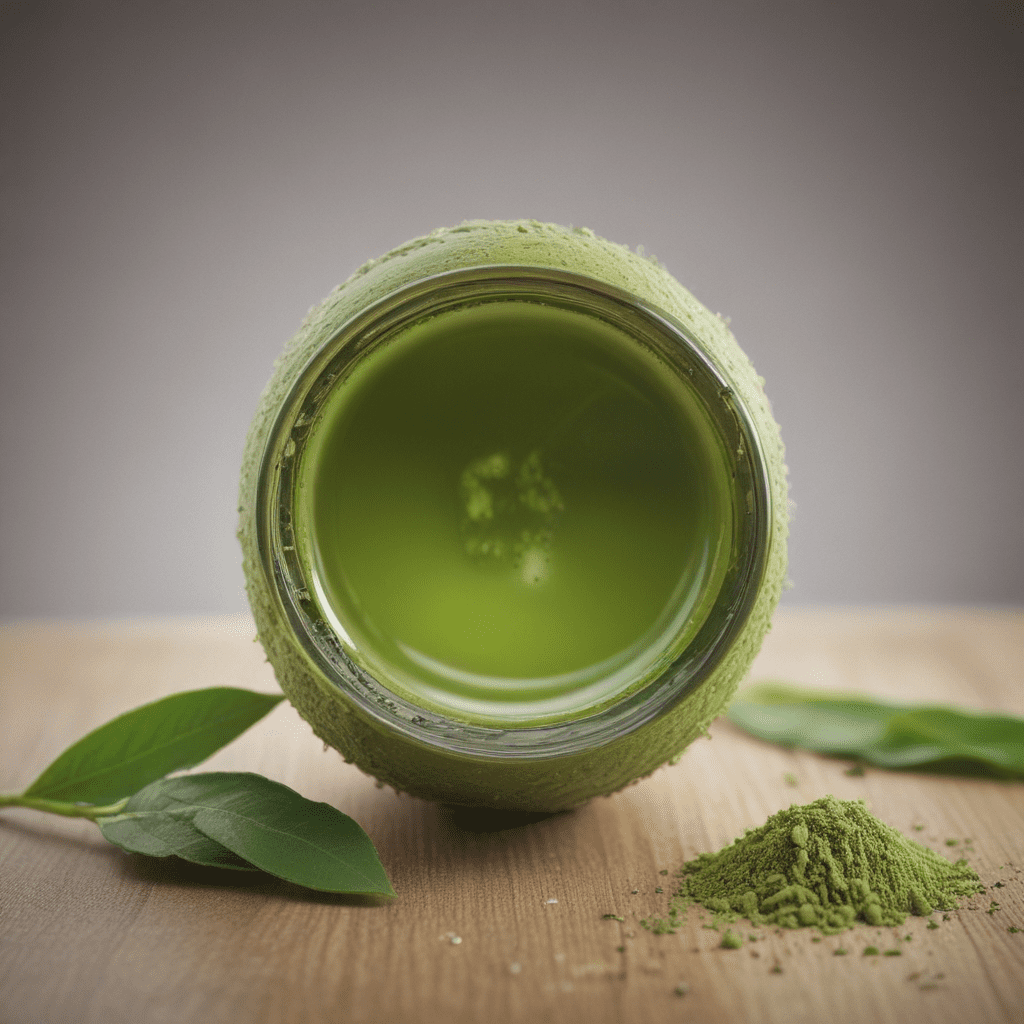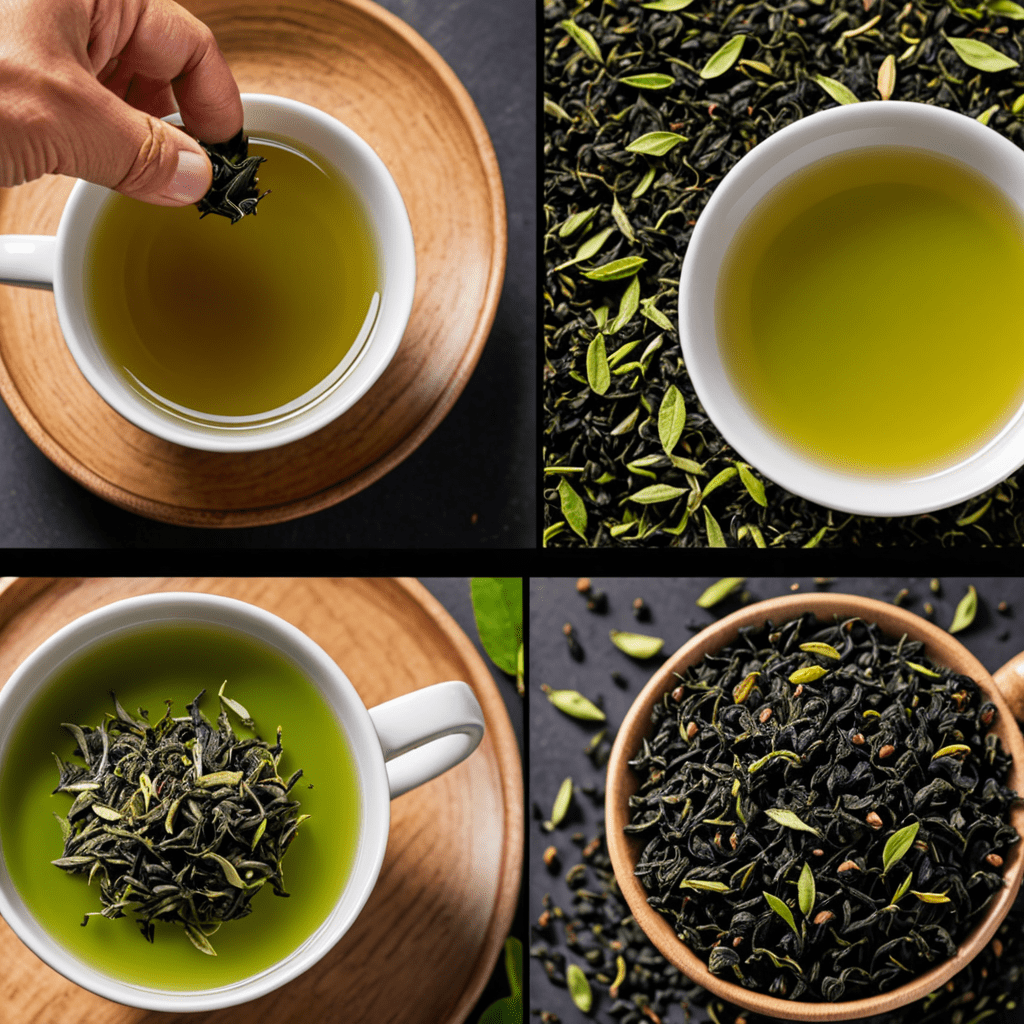
Matcha and Eye Health: Green Tea's Benefits for Vision
1. Introduction: The Importance of Eye Health
Vision is one of our most precious senses, allowing us to navigate the world and experience its beauty. As we age, maintaining good eye health becomes increasingly crucial to preserve the clarity and function of our vision. While there are many factors that can affect eye health, incorporating specific dietary components, such as matcha, can provide substantial benefits.
2. The History and Origin of Matcha
Matcha is a powdered form of green tea that originated in ancient China during the Tang dynasty. It is made from shade-grown tea leaves that are carefully harvested and processed to retain their vibrant green color and high nutrient content. Matcha has gained popularity in recent years due to its numerous health benefits, including its potential to enhance eye health.
3. Understanding the Unique Components of Matcha
Matcha contains a wide range of antioxidants, vitamins, and minerals that contribute to its health-promoting properties. One of the most notable antioxidants in matcha is epigallocatechin gallate (EGCG), which has been shown to possess anti-inflammatory and protective effects on the eyes. Additionally, matcha is rich in vitamins A, C, and E, as well as zinc and selenium, all of which play essential roles in maintaining eye health.
4. Matcha's Antioxidants and Their Role in Eye Health
The antioxidants in matcha have been shown to protect the eyes from damage caused by free radicals. Free radicals are unstable molecules that can damage cells and tissues, contributing to the development of various eye conditions. Matcha's antioxidants help to neutralize these free radicals, reducing inflammation and protecting the delicate structures of the eyes.
5. Benefits of Matcha for Reducing Eye Strain and Fatigue
Matcha has been shown to improve focus and reduce eye strain, making it beneficial for individuals who spend extended periods of time in front of digital devices. Additionally, matcha's caffeine content can provide a gentle boost of energy, reducing fatigue and improving alertness.
6. Matcha's Protective Effects Against Cataracts and Glaucoma
Cataracts and glaucoma are two common eye conditions that can lead to vision loss if left untreated. Cataracts are a clouding of the lens of the eye, while glaucoma is characterized by increased pressure within the eye. Research suggests that the antioxidants in matcha may help protect against the development of these conditions.
7. Matcha and Age-Related Macular Degeneration (AMD)
Age-related macular degeneration (AMD) is a leading cause of vision loss in older adults. AMD affects the macula, which is the central part of the retina responsible for detailed vision. Matcha's antioxidants have been shown to protect the macula from oxidative damage, reducing the risk of AMD development.
8. The Role of Matcha in Improving Night Vision
Matcha contains vitamin A, which is essential for night vision. Vitamin A aids in the production of rhodopsin, a pigment that allows us to see in dim light. Consuming matcha can help improve night vision, particularly in individuals who experience difficulties seeing in low-light conditions.
9. Practical Tips for Incorporating Matcha into Your Diet
Incorporating matcha into your diet is easy and convenient. You can add matcha powder to smoothies, shakes, or oatmeal. You can also whisk matcha powder with hot water to create a traditional Japanese tea. For those who prefer a sweeter option, matcha can be sweetened with honey or maple syrup.
10. Conclusion: The Power of Matcha for Healthy Eyes
Matcha is a versatile and nutrient-rich beverage that offers numerous benefits for eye health. Its antioxidants, vitamins, and minerals work together to protect the eyes from damage, reduce strain and fatigue, and improve overall vision. By incorporating matcha into your diet, you can take a proactive approach to maintaining the health of your eyes and preserving your precious sense of sight.
FAQs
Q: How much matcha should I consume per day?
A: The recommended daily intake of matcha varies depending on individual needs and preferences. Generally, it is safe to consume 1-2 cups of matcha per day.
Q: Is matcha safe for everyone?
A: While matcha is generally safe for most individuals, it is important to note that it contains caffeine. Individuals who are sensitive to caffeine or have underlying health conditions should consult with a healthcare professional before consuming matcha.
Q: Where can I purchase matcha?
A: Matcha can be purchased from tea shops, online retailers, and specialty food stores. When choosing matcha, look for high-quality, organic varieties to ensure purity and optimal health benefits.

